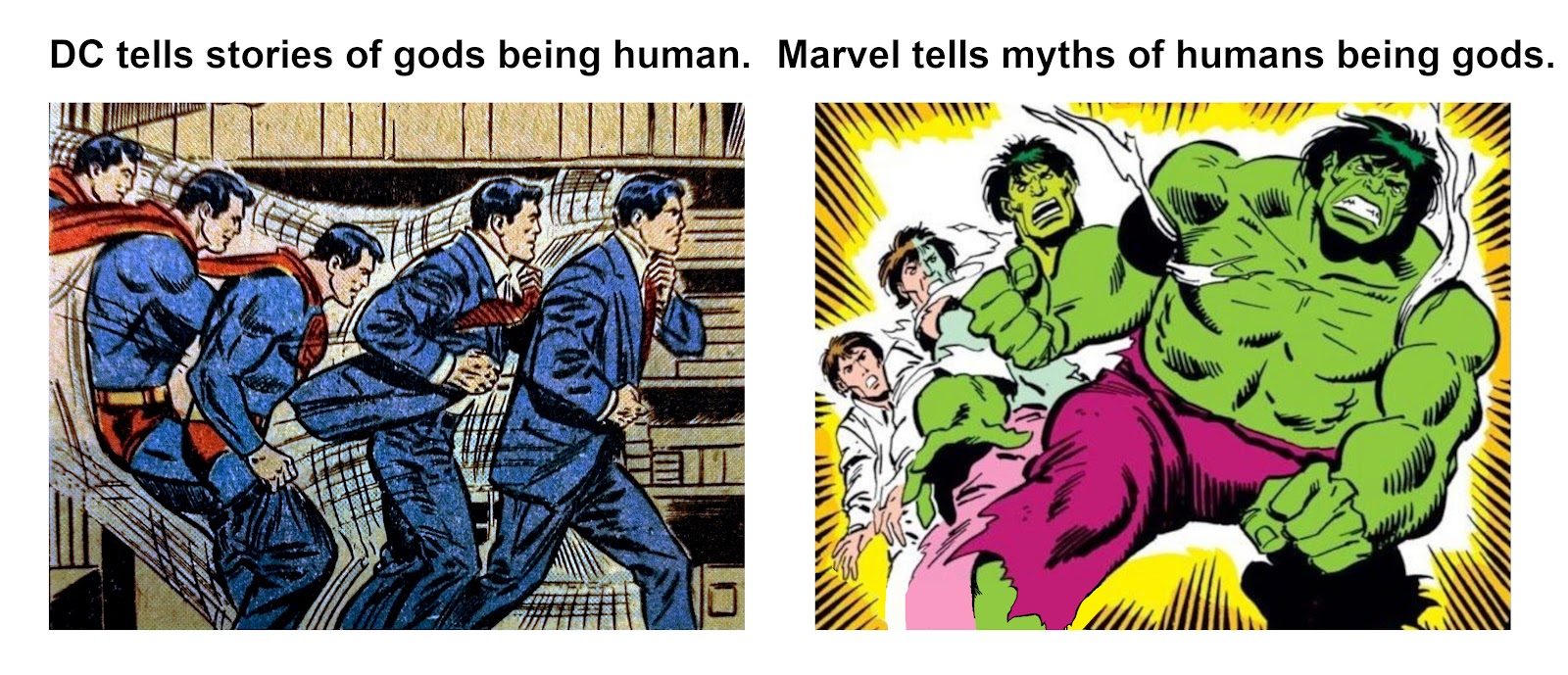My friend Lys Fulda made a succinct observation a little while back regarding the difference between Marvel and DC.
There's been decades of discussion among comics fans comparing and contrasting the two companies and their characters and their stories, and the idea that DC's characters are more like gods while Marvel's tend to have more feet of clay is hardly new. But I quite like the particular phrasing Lys came up with here. It's pithy and has a symmetry that I think works serves the distinctions really well.
Obviously, there are exceptions on both sides. Marvel's Thor is a literal god and how often does Green Arrow chastise himself for thinking he can run around with the likes of Superman and Wonder Woman? But I think it gets to the heart of the general differences pretty quickly.
But one thing that almost immediately popped into my head when I read this was a set of visuals: Superman changing to Clark Kent and Bruce Banner changing into the Hulk. A god putting on the suit of a man, and a man being empowered to the level of a god. I'd seen both of those images plenty of times in the comics and I thought it perfectly encapsulates the point visually, so I wanted to make that to be able to use/share online. I had a little trouble finding the precise image of Superman that I wanted for this, so thanks to dance along the edge 💬 for that.
In any event, here's the image I put together. I flipped the sentences because the visuals work better in this order, but I think sharing it will make for a nice light bulb moment for some people. Feel free to pass it around if you want to look clever in your comics circles.
Obviously, there are exceptions on both sides. Marvel's Thor is a literal god and how often does Green Arrow chastise himself for thinking he can run around with the likes of Superman and Wonder Woman? But I think it gets to the heart of the general differences pretty quickly.
But one thing that almost immediately popped into my head when I read this was a set of visuals: Superman changing to Clark Kent and Bruce Banner changing into the Hulk. A god putting on the suit of a man, and a man being empowered to the level of a god. I'd seen both of those images plenty of times in the comics and I thought it perfectly encapsulates the point visually, so I wanted to make that to be able to use/share online. I had a little trouble finding the precise image of Superman that I wanted for this, so thanks to dance along the edge 💬 for that.
In any event, here's the image I put together. I flipped the sentences because the visuals work better in this order, but I think sharing it will make for a nice light bulb moment for some people. Feel free to pass it around if you want to look clever in your comics circles.













